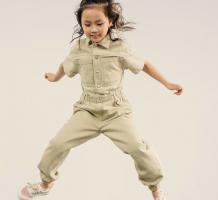The relationship between impulsivity and aggressiveness
At present we can observe a notable increase in the problems associated with aggressiveness and violence in our society. One of the reasons that seems to be identified as a key role in this question is impulsivity.
In the theory proposed by E.S. Barrat, it is proposed that certain stimuli elicit or provoke feelings of anger that can lead to aggressive behaviors. The socialization process sometimes functions as a protective factor to inhibit this aggressive behavior, but at times Sometimes we find precisely that impulsivity is usually associated with certain deficits in these mechanisms of inhibition. The result is that people with high levels of impulsivity have trouble inhibiting aggressive behaviors when they are exposed to the emotion of anger.
In this case, María José Polo, a collaborating psychologist with Psychologists Málaga PsicoAbreu He tells us about the relationship between impulsivity and aggressive behavior.
- Related article: "The 4 main theories of aggression: how is aggression explained?"
The link between aggressiveness and impulsiveness
Throughout our lives we are continually exposed to having to make decisions impulsively; all of this is part of our daily life. Sometimes these decisions can bring us positive consequences, but at other times they can also result in negative consequences that we may regret.
According to Dickman's theory, Two types of impulsivity can be distinguished; functional impulsivity and dysfunctional impulsivity.
Functional impulsivity would be defined as the tendency to make quick decisions when the situation implies a personal benefit, it would be a decision making with risk calculation included.
However, dysfunctional impulsivity would be defined as the tendency to make quick and unthinking decisions in situations in which our strategy is not optimal, this usually leads to the person in question a series of negative consequences.
Impulsivity can sometimes lead to aggressive behaviors, including verbal assaults. The signs or characteristics of impulsive behavior are related to impatience, the tendency to seek risk and pleasure, the need for immediate reward, problems to carry out an adequate analysis of the consequences of their own actions, the difficulty to inhibit behaviors, planning problems and self-control difficulties.
The various causes of appearance are related to biological, psychological and social variables. From the psychological perspective, there are different approaches that suggest that the behavior impulsive is the result of observation and imitation by vicarious learning of a model aggressive.
Numerous investigations find a direct relationship between the educational style of the family environment and the establishment in the child (and later adult) of certain behaviors associated with family values. Exposure to aggressive models could negatively influence the child's personality, generating in childhood and adulthood, self-esteem problems, fear of relating to others, low mood, etc.
In addition to the family environment, the importance of the social interaction that occurs in the school or work context in the development of the individual's personality must be recognized. Poor or unsuccessful social relationships can deprive the child of situations in which to learn to be frustrated appropriately, arriving in the adult stage to show behaviors of anger and aggressiveness before the appearance of any conflict, even minor ones importance.
Verbal assaults
Aggressive verbal behavior occurs when the words we use, the tone used, or the gestures we use we use to emphasize language create a sense of intimidation, fear, guilt or shame in the other person. Violent verbal behavior is characterized by threats, insults, criticism, yelling, orders and value judgments.
Therapeutic treatment for impulsivity and aggressiveness
Impulse control psychologists can provide patients with resources to help them improve self-esteem, assertiveness, social skills, self-control and relaxation.
Through cognitive behavioral therapy you can act on three different levels.
Cognitive
The psychologist must work with the distorted thoughts of the person, helping you identify and correct irrational ideas or dysfunctional beliefs. In addition, it will facilitate the obtaining of new alternative responses to the resolution of future conflicts.
Behavioral
At this point in the therapy, different techniques to try to inhibit aggressive behavior or at least decrease it in frequency and intensity. One of the most used techniques is that of "time out" where the person withdraws from the environment where aggressive behavior usually occurs. This behavior gives us the opportunity to observe the changes (usually positive) of not making a "hot" decision.
Emotional
At this point in therapy, the patient is given tools to learn to identify the emotional indicators that usually appear just before the violent behavior. Recognition of these signs usually serves to anticipate and check that aggressive behavior does not appear.
For this, coping techniques such as relaxation techniques and concentration techniques or Mindfulness can be of great help. It will also be important to generate alternatives for more adequate emotional expression; In this sense, knowing and training assertive communication can become a key element for people with aggressive verbal behavior problems and impulsivity.



